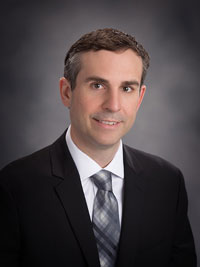Precision Medical Education: Cutting Edge Teaching and Learning
by John Mitchell, MD
2025 | Summer Issue
The AMA defines Precision Medical Education (PME) as education “focused on individualized learning that aligns with learner needs as well as the needs of current and future patients.” In medical education, PME represents the next frontier in teaching and learning. By providing timely educational opportunities that meet learners' needs and adapt to their learning styles, PME promises to enhance educational efficiency and potentiate the acquisition of competencies necessary to become skilled physicians by providing timely educational opportunities that meet learners' needs and adapt to their learning styles. This approach seeks to train the learners of the future to become “Master Adaptive Learners.” These master adaptive learners must be intellectually agile and able to seek out and integrate new knowledge seamlessly in the face of constantly changing information and developments. To facilitate master adaptive learning, PME requires significant amounts of objective data, which must then be analyzed and mapped to content areas for educational opportunities. This complex process requires a variety of creative solutions for further development.
Thematically, Artificial Intelligence (AI) underpins the programming of many modern PME paradigms. When provided with performance data or criteria on learning objectives, AI can help direct learners toward relevant content. While great progress has already been made, adaptive AI can further potentiate the goals of PME by addressing gaps in current systems. For example, AI can adapt not just the content delivered but also the mode of delivery (text, images, sound, etc.). Soon, AI will facilitate the adaptive learning protocols by linking performance data on the platform to relevant learning content while simultaneously exporting pertinent data to milestone reporting systems to enable accurate and immediate mapping of trainee performance. Further developing the connections between AI-enhanced platforms, objective performance data, curated content, customized delivery modalities, and milestone assessment systems holds tremendous promise for realizing the full potential of PME.
At the meeting in Boston, the Educational Advisory Board (EAB) asked three experts to share their unique approaches to precision medical education. The goal was to inspire our membership to take the next steps toward advancing this important area of education.
Foundations for Precision Education
Dr. Matthew Caldwell, an Associate Professor in the Department of Anesthesiology at the University of Michigan, utilizes the electronic health record to advance competency-based graduate medical education through precision education. Supported by a Foundation for Anesthesia Education and Research (FAER) Research in Education Grant, Dr. Caldwell's study spans multiple centers and years, involving hundreds of residents. The INSPECT study aims to quantify and describe anesthesiology residents' experiences with severe intraoperative hemorrhage resuscitation, determine factors associated with low exposure, and develop data visualization tools for program directors to improve resident education. The study outcomes focus on severe hemorrhage resuscitation and transfusion management, with subgroup analyses considering emergency status and surgical subgroups. The data can be used to smooth variability across residents, scaffold education, and identify high-value, low-frequency scenarios for simulation, ultimately enhancing graduate medical education through experiential learning and individualized plans. This work quantifying the hemorrhage resuscitation experience of anesthesiology residents lays the foundation for additional exploration using the quality-controlled data within the Multicenter Perioperative Outcomes Group (MPOG) data registry. He welcomes contact from individuals interested in collaborating on additional precision education initiatives.
Precision Education
From Logging to Learning: A Learning Engagement Tool to Enhance Master Adaptive Learning By Clerkship Students
Dr. Shane Stenner, Associate Dean for Education Design and Informatics at Vanderbilt University School of Medicine, presented work funded by an American Medical Association ChangeMedEd Precision Education Innovation Grant. Awarded an AMA precision education grant in 2023, Dr. Stenner's efforts leverage data and technology to personalize medical training, improve learning efficiency, and align educational practices with patient care outcomes. He will discuss his work on developing and integrating a learning engagement tool into a comprehensive custom education system. This tool identifies patient encounter types in medical students' clinic notes and recommends experiences they need more exposure to, providing educational resources based on past clinical encounters. Early initiatives include the Graduate Medical Education Laboratory (GEL), Transition to Residency Advantage (TRA), and The Anesthesia Research Group for Educational Technology (TARGET), which use real-time location tracking, EHR analytics, and targeted content delivery to enhance resident education. Future directions involve advanced analytics, large language models, interoperability, equity, faculty development, and ongoing research.
Ultrasound Education: Evolution of a Competency-Based Education Model
Dr. Robina Matyal, Vice Chair of Education and Director of the Center for Education Research Technology and Innovation at Beth Israel Deaconess Medical Center, focuses on ultrasound education and establishing criteria for minimum proficiency for trainees and faculty. Dr. Matyaldiscussed the evolution of ultrasound in anesthesiology and the challenges of incorporating this technology into the curriculum through her development of a longitudinal curriculum for residents. She emphasized the importance of hands-on experience, online modules, simulation, and virtual reality, along with quality assurance, documentation, and certification for credentialing and privileges for faculty. Dr. Matyal's work aims to ensure that anesthesiologists are proficient in perioperative ultrasonography, addressing gaps in training and promoting continuous education and certification.

References
- AMA website Precision Medical Education Portal: AMA Precision Medical Education Portal
- Desai et.al. Precision Education: The Future of Lifelong Learning in Medicine. Acad Med. 2024 Apr 1;99(4S Suppl 1):S14-S20
Author

John Mitchell, MD
Henry Ford health System
Michigan State University CHM
East Lansing, MI
|



